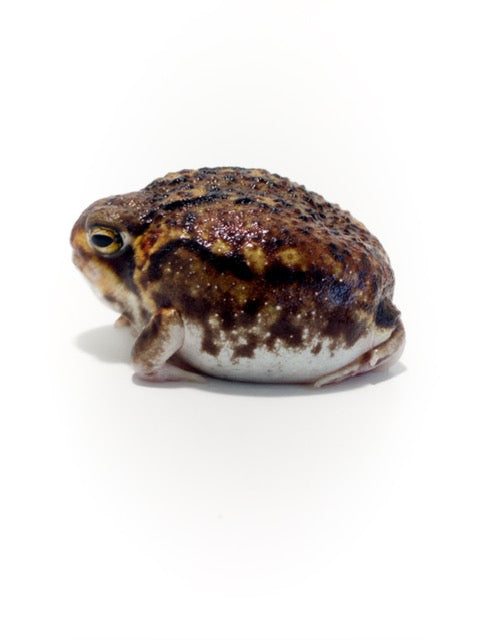Seeking Rain Frog for Sale? Locate Your Suitable Amphibian Companion Below!
Seeking Rain Frog for Sale? Locate Your Suitable Amphibian Companion Below!
Blog Article
Common Health And Wellness Issues in Reptiles: Signs and Solutions
In the complex world of reptile treatment, comprehending the usual health and wellness problems that may affect these unique animals is critical in ensuring their health. From breathing infections that can silently take hold to metabolic bone conditions that can disable, reptiles are vulnerable to a variety of conditions that require eager observation and timely intervention. Whether it's grappling with parasitic invasions, browsing dehydration issues, or attending to skin disorders that materialize in refined means, being attuned to the symptoms and equipped with the knowledge of reliable services is crucial for any kind of reptile owner. By diving better into the nuances of these health issues and discovering the useful remedies available, one can guard the wellness and vitality of these fascinating animals.
Respiratory System Infections
Respiratory infections in reptiles can substantially impact their overall wellness and require prompt interest from seasoned vets. In reptiles, respiratory system infections can be specifically testing to identify and treat due to their distinct anatomy and physiology.
Therapy for respiratory system infections in reptiles typically includes a mix of supportive care, such as maintaining correct moisture degrees and temperature level slopes in the room, in addition to targeted medication to deal with the certain microorganism responsible for the infection. It is essential for reptile owners to check their pet dogs very closely for any type of indicators of respiratory system distress and seek veterinary treatment at the earliest sign of a problem. With timely intervention and ideal therapy, numerous reptiles can recoup fully from respiratory infections and resume normal tasks.

Metabolic Bone Disease
What elements add to the development of Metabolic Bone Illness in reptiles?
Metabolic Bone Illness (MBD) in reptiles is largely created by an absence of correct calcium, phosphorus, and vitamin D3 levels in their diet regimen. Furthermore, inadequate exposure to UVB light stops reptiles from manufacturing vitamin D3, which is critical for calcium absorption and bone health and wellness.
Various other contributing elements to MBD include improper temperature gradients within the reptile's habitat, causing lowered metabolic rate and damaged calcium absorption. Not enough moisture degrees can likewise impact a reptile's capacity to metabolize calcium effectively. Furthermore, specific reptile varieties have particular dietary needs that, if not satisfied, can raise the chance of developing MBD. Normal veterinary check-ups, proper husbandry techniques, and a well balanced diet regimen are necessary to prevent Metabolic Bone Illness in reptiles.
Parasitical Problems
Parasitic problems present a substantial health risk to reptiles, impacting their overall health and needing timely vet interest. Reptiles can be influenced by different bloodsuckers, consisting of termites, ticks, inner worms, and protozoa. These bloodsuckers can create a variety of symptoms, such as weight reduction, lethargy, skin inflammation, diarrhea, and even fatality if left neglected.
One common bloodsucker found in reptiles is the mite, which can trigger skin anxiety, anemia, and inflammation. Ticks are one more external bloodsucker that can cause and transfer diseases discomfort to the reptile. Internal bloodsuckers like worms and protozoa can lead to digestive system issues, poor nutrition, and deteriorate the reptile's immune system.
To detect a parasitical infestation, a veterinarian may execute fecal tests, skin scrapings, or blood examinations. Therapy usually involves deworming drugs, antiparasitic bathrooms, or in severe instances, a hospital stay. Preventative steps such as routine vet exams, proper health, and quarantine treatments for new reptiles can aid lessen the danger of parasitic infestations and make sure the well-being of reptile pets.
Dehydration and Hydration Issues
Dehydration in reptiles can dramatically influence their health and wellness, demanding prompt intervention and suitable hydration management. If left without treatment, dehydration can lead to major health issues and also be deadly to the reptile.
To avoid dehydration, reptile proprietors need to make certain that their animals have accessibility to clean water at all times. The water recipe should be large enough for the reptile to soak in if needed, especially for varieties that take in water with their skin. Additionally, keeping proper moisture levels in the reptile's room and supplying routine bathrooms can help stop dehydration.
In situations of dehydration, it is critical to look for veterinary care immediately. A vet might provide liquids either by mouth or via injections to rehydrate the reptile. internet It is important to deal with the underlying root cause of dehydration to stop reoccurrence and make sure the reptile's total wellness.
Skin Disorders

Conclusion

Respiratory system infections in reptiles can dramatically influence their total wellness and require punctual interest from experienced veterinarians (rain frog for sale). Preventative actions such as regular vet examinations, appropriate hygiene, and quarantine procedures for new reptiles can assist minimize the danger of parasitical problems and make sure the well-being of reptile pets
If left unattended, dehydration can lead to significant wellness concerns and even be fatal to the reptile.
Routinely evaluating your reptile for any modifications in skin look, structure, or color can help in early discovery and therapy of skin conditions, promoting the overall wellness and well-being of your flaky friend. - rain frog for sale
In final thought, reptiles are vulnerable to various health and wellness problems such as breathing infections, metabolic bone condition, parasitic infestations, dehydration, and skin ailments.
Report this page